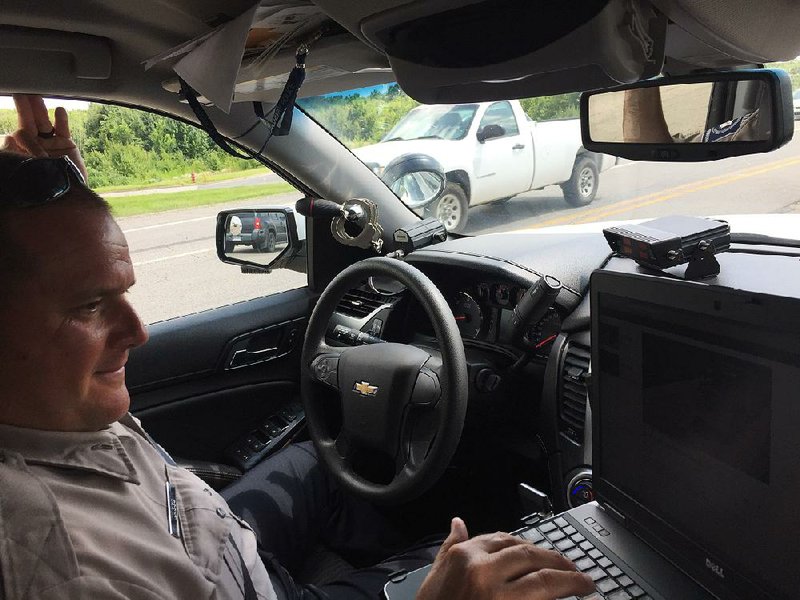After years of planning and preparation, Arkansas' first virtual weigh station is up and running.
The virtual weigh station, or weigh-in-motion system, has been installed on eastbound Arkansas 64 in Alma to monitor drivers of overweight trucks who might be avoiding the bricks-and-mortar weigh station on Interstate 40.
"It's a smart thing to do," said Russell Melton, a driver with Stallion Transportation Group. "Everybody goes around that scale."
"There's a reason why we're 80,000 pounds and no more," he said of weight limits. "It tears up the roads, and it's harder to stop the truck. You could kill somebody with that weight."
The system is set to measure weight, speed, vehicle class, license plates and registration numbers and take a photo of the heavier vehicles. All officers with the Arkansas Highway Police in the district have received training on the technology.
In Arkansas, and across the country, vehicles must remain under a designated weight depending on how many axles they have, what they're hauling and what kind of road they are on. In general, for a five-axle tractor-trailer, the maximum is 80,000 pounds. Being overweight means a $125 fine plus a graduated amount of cents per illegal pound.
Those fines go back to the Arkansas Highway Department's general fund for road repair.
Maj. Jay Thompson of the Arkansas Highway Police said the virtual weigh station "is a tool for us to identify those vehicles that are overweight without stopping them and weighing them all. For the ones that we stop, we will already know they have the potential" of being overweight.
"It's important to know that it's not an enforcement tool," he said. "Before we write a citation to anyone for violating the laws, we will use our scales to take a static reading." Officers with the Highway Police carry portable scales. Trucks also could be directed back to the scale house for a measurement.
Thompson said discussions about the technology began in 2008. Arkansas' program was funded through a grant from the Federal Motor Carrier Safety Administration. Other states have deployed the technology.
After studying the impact of the first virtual weigh station, Thompson said, "We will also continue to explore other routes in the state that are being used to bypass our stations at ports of entry."
Cpl. Jason Daggs of the Highway Police said the virtual tool helps law enforcement officers and drivers.
"If we're not sure and take the time to weigh them, that's wasting their time and my time if they're not overweight," Daggs said.
The Highway Police will continue staffing the Alma scale house regularly while monitoring virtual weigh station data, Thompson said.
Daggs said he has already seen a drop in heavy vehicles using the road. "Once word got out, they have stopped coming."
Daggs said it is like when he parks in the same place repeatedly to monitor speeds.
"Drivers will learn and you won't get anything anymore. And that's good. To me, I've done my job then."
Thompson agreed.
"Just by having the equipment there in itself is going to be a deterrent to those who choose to violate weight laws, which is a good thing," Thompson said. "Protecting our infrastructure is one of our primary priorities at the Highway Police."
Business on 06/16/2017

